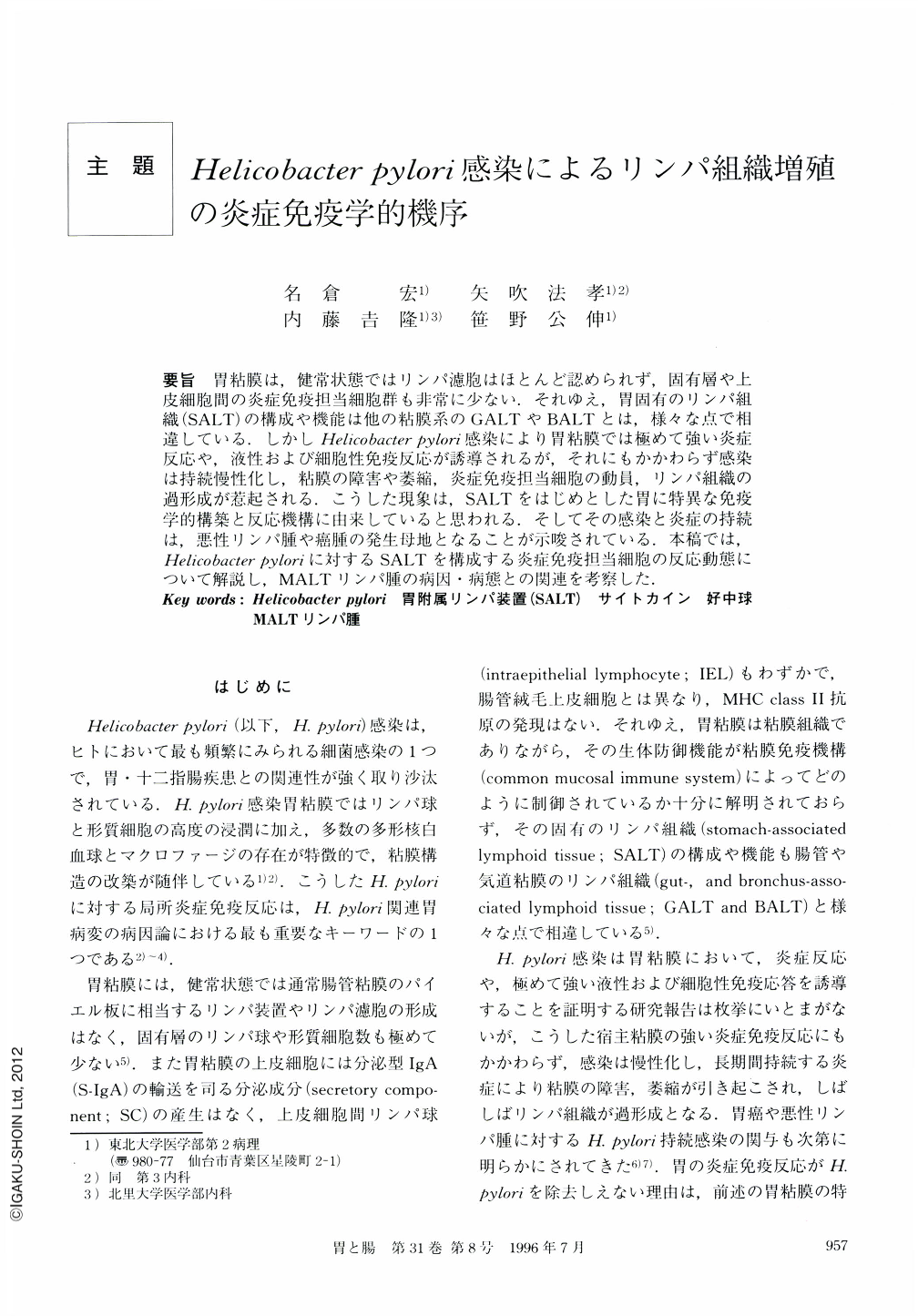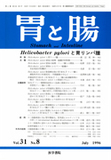Japanese
English
- 有料閲覧
- Abstract 文献概要
- 1ページ目 Look Inside
- サイト内被引用 Cited by
要旨 胃粘膜は,健常状態ではリンパ濾胞はほとんど認められず,固有層や上皮細胞間の炎症免疫担当細胞群も非常に少ない.それゆえ,胃固有のリンパ組織(SALT)の構成や機能は他の粘膜系のGALTやBALTとは,様々な点で相違している.しかしHelicobacter Pylori感染により胃粘膜では極めて強い炎症反応や,液性および細胞性免疫反応が誘導されるが,それにもかかわらず感染は持続慢性化し,粘膜の障害や萎縮,炎症免疫担当細胞の動員,リンパ組織の過形成が惹起される.こうした現象は,SALTをはじめとした胃に特異な免疫学的構築と反応機構に由来していると思われる.そしてその感染と炎症の持続は,悪性リンパ腫や癌腫の発生母地となることが示唆されている.本稿では,Helicobacter Pyloriに対するSALTを構成する炎症免疫担当細胞の反応動態について解説し,MALTリンパ腫の病因・病態との関連を考察した.
Helicobacter pylori(H. pylori) infection of the gastric mucosa results in acute inflammation with various degrees of mucosal damage followed by chronic inflammation with persistence of the organism, and is particularly characterized by neutrophil infiltration. IL8, which is a potent activator and chemotactic agent for neutrophils, is implicated in the pathogenesis of mucosal neutrophilic inflammatory and infectious conditions such as are found in the H. pylori-infected gastric mucosa. The organization of the stomach-associated lymphoid tissue (SALT) differs from that of gut-associated lymphoid tissue (GALT). SALT lacks organized lymphoid follicles like Peyer's patches, and the number and density of T- and B-cells in the lamina propria are far less in the gastric mucosa. H. pylori infection also induces noticeable infiltration of the gastric mucosa by macrophages, lymphocytes and plasma cells, and frequently the association of lymphoid follicles. This suggests that immune mechanisms are involved in this condition. Cytokines are well documented to be of fundamental importance in orchestrating immune responses, and persistent cytokine inducing mucosal damage is found in chronic infections such as H. pylori gastritis. Furthermore, H. pylori itself influences the T-cells directly or through the stimulation of cytokine production by macrophages and epithelial cells. sIgA+ B-cells secrete H. pylori-specific IgA in response to IL6 synthesized by activated T-cells, and low grade B-cell gastric lymphoma cells of MALT type proliferate in response to H pylori in the presence of tumor-infiltrating T-cells. Although the nature of the H. pylori-derived stimulus for T-cell proliferation and activation is unclear, the immune response to H. pylori is likely to involve the stimulation to T-cells mediated by the cascade of cytokine production.

Copyright © 1996, Igaku-Shoin Ltd. All rights reserved.


